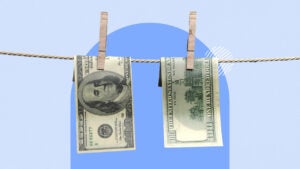SBA loan and startup funding for women

Key takeaways
- Despite growth, women-owned businesses still face challenges in obtaining funding, with a higher percentage of loan applications being denied compared to male-owned businesses.
- Women entrepreneurs can take advantage of various financing options, including SBA loans, crowdfunding, and grants, to help overcome funding obstacles.
- The SBA has programs specifically designed to support women-owned businesses, such as the 8(a) program and initiatives to increase federal contracting opportunities for women-owned businesses.
More than 14 million women own businesses in the U.S. as of 2024 according to research from the National Women’s Business Council. This accounts for 39.1 percent of all U.S. businesses. But starting a business is no easy feat, and it takes funding to start and operate any business. Women have more trouble than men seeking business funding. Twenty-five percent of women had their loan applications denied in 2022 versus 19 percent of male-owned businesses.
To get the funding needed to run a successful business, women can pursue all loan options available. There are a number of business loans available specifically for female entrepreneurs, including crowdfunding, Small Business Administration (SBA) loans and both local and national grants.
Female entrepreneur statistics
Although female entrepreneurs and women-owned businesses have been on the rise in the country, the disparities between male- and female-owned businesses— especially for minority women —are stark.
-
23 percent of employer firms were owned by women.
-
Female entrepreneurs are less likely to have completed secondary education than male entrepreneurs
-
Women-owned businesses are more likely to rely on funds from personal sources, such as family and friends and savings.
-
Globally, women account for roughly one in four of all high-growth entrepreneurs.
-
In 2024, over 50 percent of women entrepreneurs surveyed said they plan to expand their business.
An SBA loan is a small business loan guaranteed by the U.S. Small Business Administration (SBA) and helps cover eligible businesses’ expenses. There are multiple SBA loans available with loan amounts ranging from $50,000 to millions of dollars.
SBA loans are available to both men and women entrepreneurs. But women business owners tend to receive funding at lower rates than their male counterparts. Here are statistics on the SBA and women-owned businesses:
-
The Federal Government aims to dole out 5 percent of all federal contracting SBA funds to women-owned small businesses each year.
-
Since 2020, 13 percent of women of color have received less business-related financial assistance from banks and institutions than men.
-
Women of color were denied business-related relief funds 2 to 3 more times than white or male business owners.
-
$5.6 billion in microloans has been awarded to businesses that are majority women-owned – from lenders that work with the SBA – are currently handled by women.
-
In 2021, 38.3 percent of women-owned businesses’ total sales decreased due to the COVID-19 pandemic.
-
Over 60 percent of women have sought financing to meet operating expenses.
-
In 2024, 20.8 percent of federal SBA 7(a) loan funds were awarded to businesses that were more than 50 percent women owned.
Between the SBA 504 and 7(a) programs in the 2024 fiscal year, 15,509 were approved for women-owned businesses of 50 percent or more, compared to the 52,712 approved for men-owned businesses.
The gap in funding has not stopped women entrepreneurs from launching new businesses in a variety of industries.
The most common industry for women-owned businesses is retail, which accounts for 16 percent. Another 17 percent of women-owned businesses are in the health, beauty and fitness services industry. Most other businesses operate in food, lodging and education. The majority of women-owned businesses also give back to their communities and uplift other organizations.
-
White women-owned: 1,031,429
-
Hispanic women-owned: 103,793
-
Black or African American women-owned 62,952
-
Asian women-owned: 184,689
-
American Indian and Alaska Native women-owned: 14,590
Where you can get startup funding as a woman-owned business
For many, getting started is the most difficult part of financing a startup or business venture. Thankfully, there are plenty of ways to get your feet off the ground and start your business.
Crowdfunding
According to the National Women’s Business Council, women are more successful at crowdfunding than men by 9 percent. This popular alternative funding method opens the door for access to capital through contributions from individuals supporting the project, business or cause. One of the main benefits of crowdfunding is that it offers a platform for women entrepreneurs to showcase their ideas directly to a diverse audience, potentially overcoming traditional barriers when accessing funding.
Business loans
Small business loans are accessible through banks, credit unions and online lenders. They can be secured with collateral or unsecured with no collateral. Small business loans give entrepreneurs the necessary capital to start, expand or manage their businesses. Repayment terms, interest rates, fees and collateral requirements vary by lender, so be sure to shop around. SBA loans often come with lower rates, longer repayment terms and business-related resources and counseling.
Mentorship and entrepreneurial development programs
Women’s Business Centers offer access to a world of resources and mentorship opportunities and can expose you to financing opportunities you wouldn’t otherwise have access to.
Attend conferences, events and webinars as networking puts you in touch with industry experts. They can offer both their support and advice when it comes to financing your next venture.
Federal, state and organizational grants
Federal, state and organizational small business grants for women offer financial support without requiring repayment. Since many of these grants were created to foster economic growth by providing women and minority entrepreneurs with resources to develop and scale their businesses, it is an appealing option, especially when obtaining business credit or a loan is out of the question. But this type of funding is competitive, so securing a grant isn’t guaranteed.
Private business grants for women
Large corporations and businesses offer business grants specifically designed to support women entrepreneurs. Many of these grants provide financial assistance as well as mentorship and resources to help women-owned businesses thrive and succeed in their respective industries.
SBA 8(a) program
The SBA 8(a) program is a nine-year program aimed at assisting small, disadvantaged businesses, including those owned by women entrepreneurs. It offers specialized support, training and contracting opportunities to eligible firms, empowering them to compete in the federal marketplace and foster long-term growth.
The bottom line
Women entrepreneurs face a lot of challenges when it comes to accessing funding to start their businesses. With dedicated programs, resources and initiatives, the SBA helps women overcome financial barriers and fulfill their dreams, making it a good place to begin your search for funding.
Frequently asked questions
Why we ask for feedback Your feedback helps us improve our content and services. It takes less than a minute to complete.
Your responses are anonymous and will only be used for improving our website.
You may also like

Types of unsecured business loans

How to get funding to start a business

SBA loan guide: Everything you need to know about SBA loans



